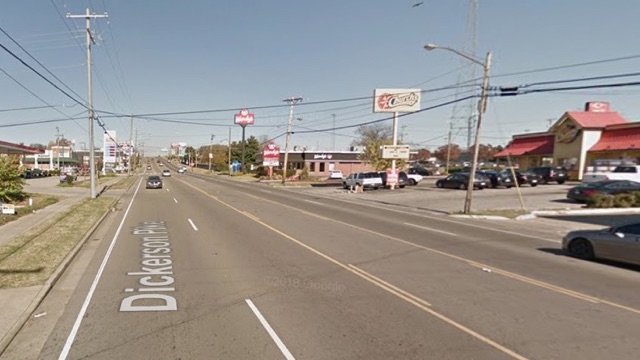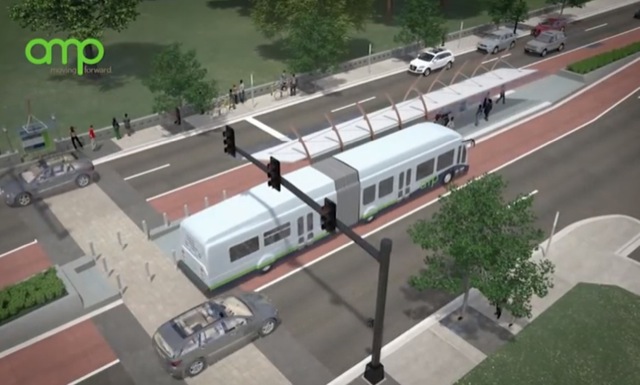Last May, Nashville voters rejected a proposed light-rail plan by nearly two to one. In 2014, the state stopped a plan to convert existing road lanes to dedicated bus lanes. But that hasn’t stopped the city from coming up with ridiculous new plans for transit.
Dickerson Pike today.
The city is proposing to convert two of the five lanes on Dickerson Pike into bus-rapid transit lanes. The city expects the corridor’s population to grow by 35 percent in the next two decades, which means any congestion today will be much worse in the future. That certainly won’t be helped by reducing the number of lanes by 40 percent. Continue reading









